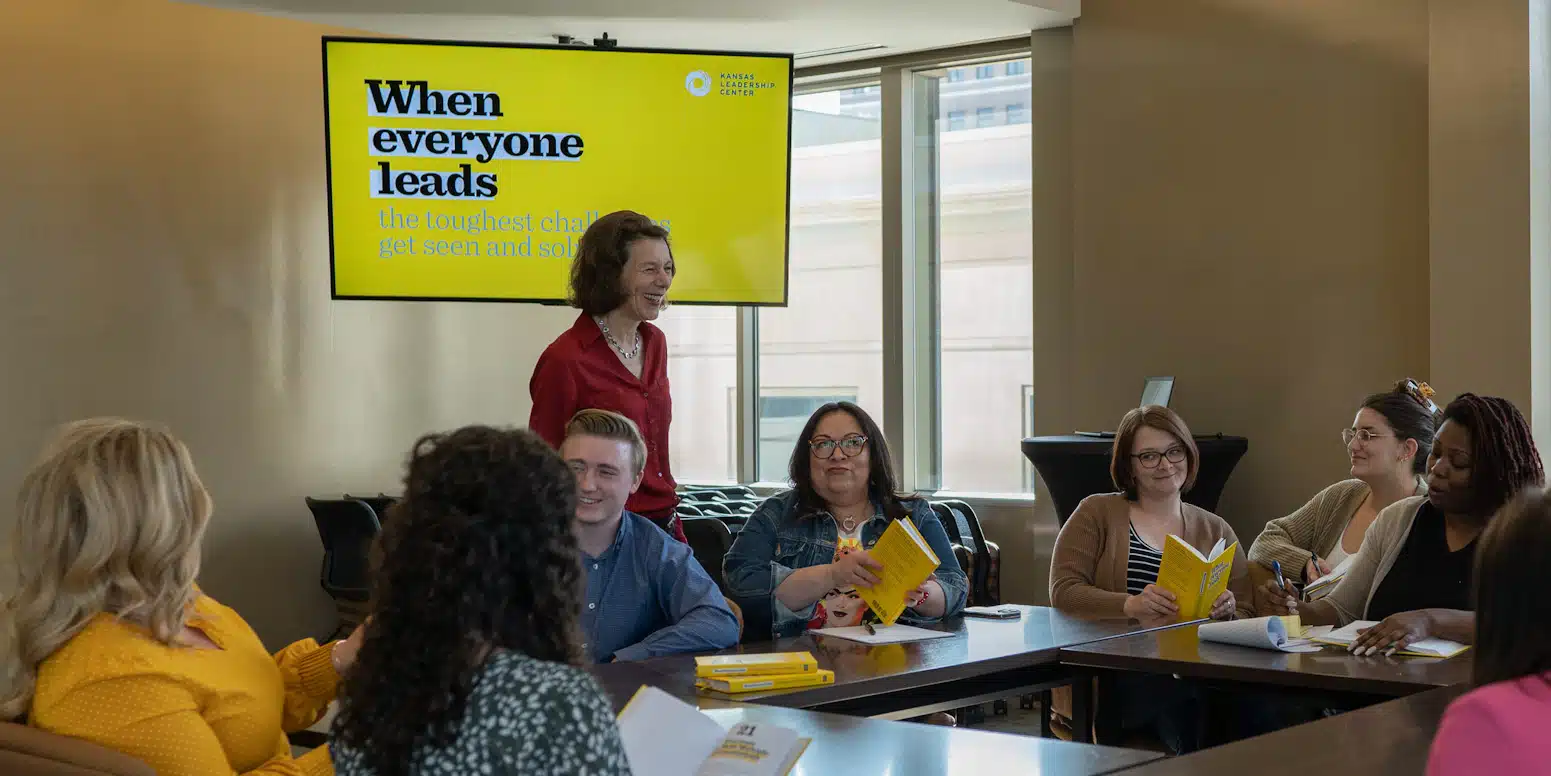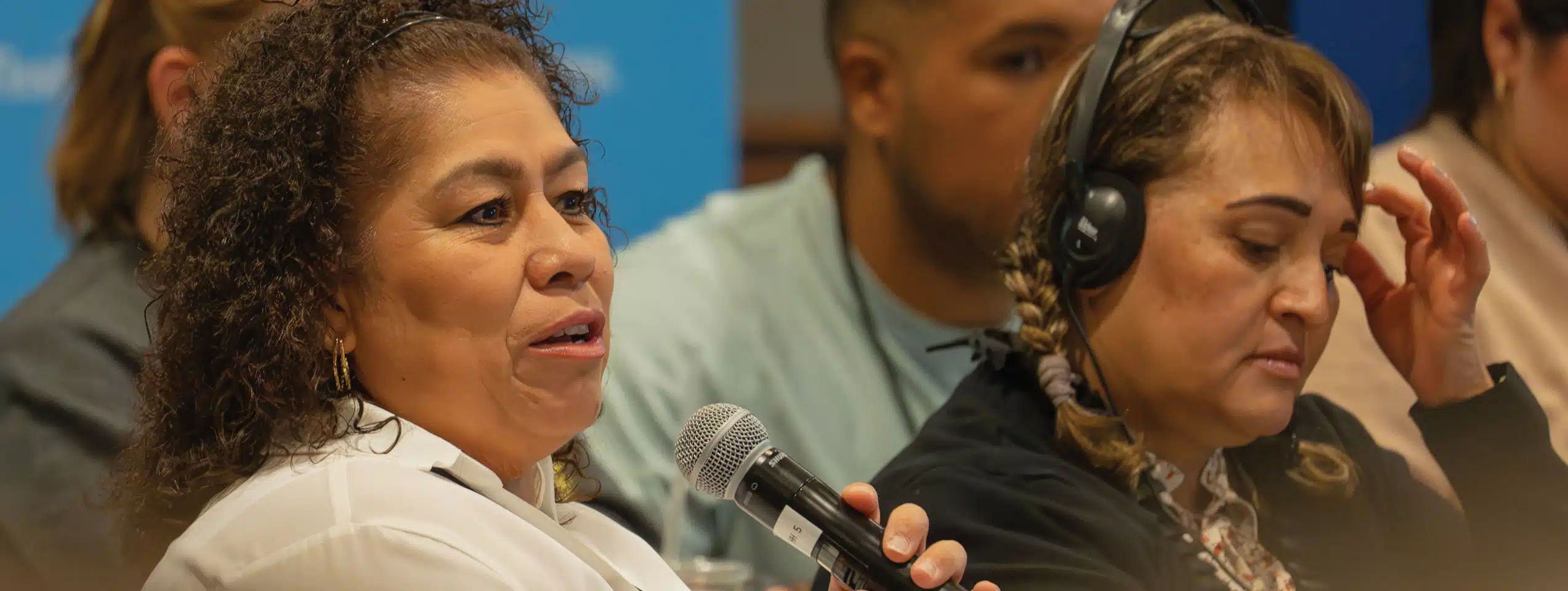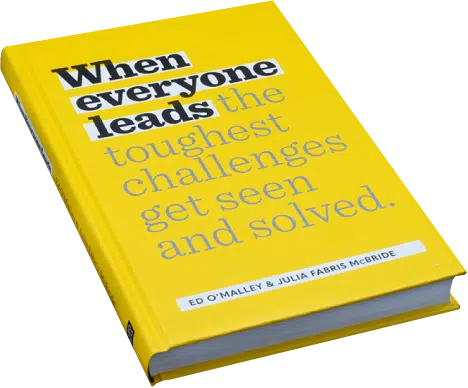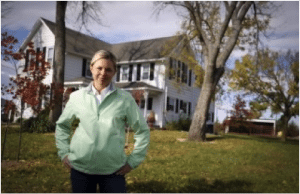
Dixie Russell
What’s on the minds of Kansans? A lot actually. They are concerned about everything from access to good-paying jobs to diminishing water resources, declining work ethics and reductions in funding for public education. Some see the state largely heading in the right direction; others worry that something they value could be hurt in the coming years.
For the Winter issue, The Journal asked Kansans from across the state to tell us what was on their minds. We sought out thoughtful people with a variety of different backgrounds and viewpoints, particularly people who might not normally be in the public eye.
Read the six profiles below and see what 10 more Kansans have to say in the print edition of The Journal, which will arrive in mailboxes soon.
We asked Kansans about their hopes, concerns and what’s happening in Kansas right now that most significantly affects their lives. And we also asked: “What do you want to see happen here to benefit the common good?”
Their insights reveal values that so many of us share, even as they demonstrate that our experiences, opinions and concerns differ greatly on the basis of who we are and where we live.
HOW DO WE FOSTER MORE PERSONAL RESPONSIBILITY?
Dixie Russell grew up near South Haven, where her family had a diversified crop and livestock operation. She graduated from Kansas State University with a degree in agricultural economics in 1999. She met her husband, Stephen, at K-State, and both of them are “in the business of making beef better.”
She works for a small ad agency in Topeka with accounts tied to agribusiness and her husband works for the Kansas Beef Council. They have two children, Corbin, age 4, and Kirwin, age 2, and they live outside of Paxico, which Dixie says “is a good place to raise kids” because of the “open spaces for them to explore and the small-town community spirit.”
When you think about the future of Kansas, what concerns you the most?
[My biggest concerns are] two things that are related. I would say a lack of work ethic and taking responsibility is first. There seems to be a lack of long-term commitment needed to get things done. There’s a lot of hardworking youth, but some individuals in the younger generation want to help the world — but they want to accomplish it in one weekend.
Second: A lack of education in how to handle basic finances, something as simple as making a budget and sticking with it, is pretty scarce. Folks seem to have a spending problem and tend to charge items that are wanted immediately. They lack the ability to set a goal and have the persistence and patience to work toward it and accomplish it.
What is something that you would like to see change for the common good in Kansas?
Politicians at the local, county, state and federal levels [need] to put aside their self-serving attitudes. Politicians and governing can bind you up or turn you free. If they bind you up, they constrain the entrepreneurial spirit.
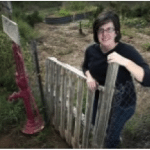
HOW DO WE PRESERVE THE BENEFITS OF RURAL LIFE?
Andi Dale lives near Protection, a town of about 500. She’s been married to her husband, Kurt, for 16 years and they have three daughters. She works as a part-time high school math teacher and does marketing for family business, Dale Family Farms.
Four years ago she quit teaching full-time to work on the family farm. But two and a half years of drought forced them to sell about 60 percent of their cow herd. When the principal approached her about returning to a part-time job teaching math at the school she had left a few years ago, she decided it was a good opportunity. Aside from the money and the insurance, the timing was right because their three daughters are now all in school. She values that she feels her children are safe and that they’re growing up in a community with deep connections to the land and to other people.
One of the big things that has affected us as a county is the oil boom and the fluctuation of the population. A lot of the people we have moving in right now are short term; there’s not that sense of permanence. I think if you know you’re going to be somewhere for a long time, you interact with people differently than if you know you’re going to be there for six months and move.
Growing up in Salina, I lived on a street where everyone knew the neighbors. But I’ve never experienced community like they have in Comanche County.
In a small town everyone knows your business. We get to put names and faces together, and they know that they’re part of our story. It’s easier to help somebody you already know.
How do we keep the connection? I think we have to make a choice to slow down, and we’re not very good at that because everybody else is screaming at us to do it faster and to do more. I think if we don’t have that connection, it doesn’t matter what we get done or how fast we get it done because it’s for naught.
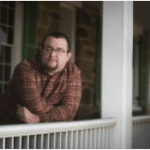
FACING A MOVE TO FIND BETTER OPPORTUNITIES
Brian Allen Gano, 27, is a college student studying technology science, with an associate’s degree in business. In 1996, when he was 10, Brian suffered a traumatic brain injury in an accident that left him with a slim chance of survival. He had to learn to do everything again and is paralyzed on his right side.
He went to college when he was 20, but decided to delay it. He lived in Alaska and Illinois before returning to Kansas.
He and his wife are living in Larned now because she has a job at Larned State Hospital. When he graduates, they may move to find jobs for both of them.
The state doesn’t offer as much job variety as I would personally like. I’m going to college right now. I’m almost finished with my bachelor’s, and I’m looking at possibly having to move to have a career and life together. I’m in technology, and she’s in the medical field so we might have to move to satisfy both our career needs.
I am a person with disability, of course. I don’t receive any benefits from the state.
I’m really independent so I don’t worry for myself. But I’m also a protector for other people, and so when I hear of somebody for example who is blind, and all of a sudden has no funds available to get a seeing-eye dog, it’s sad. It’s not the fact that it happened that it’s sad; it’s sad that our community is not strong enough to pull together the funds or to help the people in need and we can’t provide that need. I don’t think that the government should be responsible for our needs as a community. I think our communities need to help our people. People need to realize they need to rely on their community and not their government.
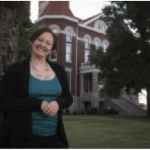
HOW WILL WE PAY FOR PUBLIC SERVICES?
Kate Catlin is the owner and editor-in-chief of The Harper County Herald in Anthony. She lived in midtown Kansas City for 15 years before coming here. She and her husband have a 15-year-old daughter, and she likes giving her an “old-fashioned” childhood.
She is concerned about how small communities can survive and about citizens being involved in their local government. A sense of community appeals to her.
I’m concerned with how cities and counties are going to pay for public services like education, clean streets, decent streets, good electricity and water without any money coming down from above. How does a town make money?
Our county is really lucky. We have a landfill that brings in a lot of money. But I also know that many municipalities and counties don’t have that.
We have a lake, but it dried up. It needs to be dredged. It would cost millions of dollars to do that. It could help our town survive, but where does a little town come up with five million dollars?
There was so much that I didn’t understand about living in a rural community until I lived here and ran a business here and got to know how things work. Things work differently in rural communities, and if you’ve never lived in one or taken the time to really listen to people who have, then there’s absolutely no way you’ll be able to understand how different it is.
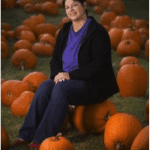
HOW WILL WE SUPPORT THE ARTS IN EDUCATION?
Tanya Leite-Chalfant is a Wichita wife, mother, photographer and artist. It is important to her to be mindful of what she feeds her family, which includes four young boys. Leite-Chalfant grew up with an orchard, and her grandfather was a horticulturalist, so she tries to give the boys some of that experience “even in suburbia” with a plot that is about 20 feet by 4 feet.
She buys whole chickens, eggs and beef from local farmers, stocking up her freezer twice a year. They have a garden, sharing tomatoes and peppers with neighbors and family or trading for others’ veggies. The family tries to eat organically as much as possible and focuses on whole foods, cooking from scratch. She and her husband also try to be as “green” as possible, choosing to use cloth diapers, watering the garden with a locally purchased rain barrel and recycling.
The concern I have first with Kansas and what I see as a risk is in our public schools. The cuts to public education are very concerning to me. I have two boys in elementary school right now and am seeing the trickle down of the cuts, especially to the arts. I know of several music and art teachers whose time in the classroom has been cut and who are covering several schools now to “give at least one day or one hour per week” to a student. We need to value these subjects and understand that the fine arts are crucial to forming well-rounded minds. I would love to see funds allocated to provide more outreach to students at risk that utilize the arts. I know several local artists here in Wichita that donate their time and also supplies and equipment to work with kids and see the benefits in the community and in schools. We need to value educating our children in order to offer them choices in their careers and in life.
What is something that you would like to see change for the common good in Kansas?
I believe change happens best and with the least amount of damage in small steps. Even though I am a juggernaut on some issues, I have come to see that slow and steady is the best way to allow change and foster tolerance of the change. … Here is my list of wishes if I had a wand: marriage equality for all and health care for the uninsured and underinsured, especially children, the elderly and those with mental illness.
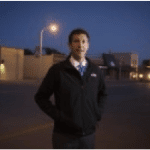
HOW WILL WE KEEP RURAL COMMUNITIES VIBRANT?
Mitchell Moss grew up in Hoxie and returned to live there after graduating with a degree in economics from Kansas State University in 2001. After working for a CPA, he moved over to the First State Bank in 2004 and now works as an agricultural loan officer.
When you think about the future of Kansas, what concerns you the most?
The sustainability of small-town Kansas is threatened on two fronts. With the state of our local budget and the potential decrease in local government services and making them more efficient by combining services and consolidating them with other counties, we may have to drive farther to access certain things. That’s not to say that’s bad, but it’s hard to lose those things.
Urban migration of young residents after they pursue their college degrees [is the second threat]. The small town can’t attract young people and residents to keep the school system strong, and we need a community effort to keep our small towns lively and vibrant to attract those professionals and keep the ones that we do have.
What is something that you would like to see change for the common good in Kansas?
In Kansas and our country, [we need] a reduction in the polarization of our political leaders’ thoughts and beliefs. We’ve moved too far from both sides of the middle. To move forward as a state and a country, we need to move closer to the middle and be able to debate the issues and not vote against an issue just because it comes from the other side.
I think that as you move up in the ladder politically, it’s just more about winning votes by saying the right thing and being afraid to not get elected again. Something is messed up on the political ladder somewhere along the line where it changes from one mindset to another [and] you’re more attached to your party than your constituents.
